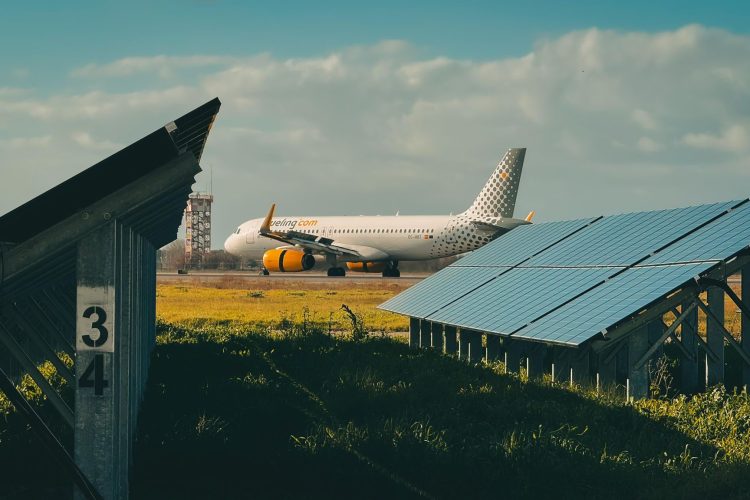Rome Fiumicino Airport unveils Europe’s largest self-consumption solar farm to boost sustainability efforts
- Like
- Digg
- Del
- Tumblr
- VKontakte
- Buffer
- Love This
- Odnoklassniki
- Meneame
- Blogger
- Amazon
- Yahoo Mail
- Gmail
- AOL
- Newsvine
- HackerNews
- Evernote
- MySpace
- Mail.ru
- Viadeo
- Line
- Comments
- Yummly
- SMS
- Viber
- Telegram
- Subscribe
- Skype
- Facebook Messenger
- Kakao
- LiveJournal
- Yammer
- Edgar
- Fintel
- Mix
- Instapaper
- Copy Link
Posted: 21 January 2025 | Gabriel Higgins | No comments yet
Rome Fiumicino Airport has launched Europe’s largest self-consumption solar farm, generating 30 million kWh annually and advancing its commitment to sustainability and carbon neutrality by 2030.


Rome Fiumicino Airport
Aeroporti di Roma (ADR) inaugurated on 20 January 2024 its new Solar Farm, marking the largest self-consumption photovoltaic system at a European airport, and one of the largest worldwide. Located along the eastern side of Runway 3, the system spans almost 2.5 km and comprises around 55,000 mono-crystalline silicon panels, generating 22 MWp of power. The farm will produce over 30 million kWh of electricity annually, enough to power approximately 30,000 Italian households for a year, or charge over one million electric vehicles.
“The launch of the new Solar Farm strengthens our commitment to the green transition and decarbonisation, with an infrastructure that is unique in the international airport landscape. The energy independence that this new project ensures for our 5-star airport will significantly reduce the environmental impact of our operations, in line with the sustainable development model that we have been building for years – a model representing the first and essential prerequisite for the growth of the airport, the region and the whole country,” said Marco Troncone, CEO of Aeroporti di Roma.
Details of the new Solar Farm
The project, designed by ADR and built by Enel in collaboration with Circet, represents a significant step towards the airport’s goal of reaching 60 MWp in the next five years through additional solar farms. With a total investment of €50m, this initiative is part of a wider portfolio of renewable energy and sustainable mobility projects worth over €200m.
The Solar Farm is expected to reduce the airport’s CO2 emissions by more than 11,000 tons annually. It is a key part of ADR’s commitment to energy transition and decarbonisation, with the aim of achieving Net Zero Carbon by 2030, 20 years ahead of the aviation industry’s target. This project aligns with the ESG strategy of group leader Mundys, with objectives certified by the Science Based Target Initiative (SBTi), aiming to limit global warming to 1.5 Degrees Celsius. This ambitious target is supported by projects like today’s solar installation, which are critical for achieving the goal.
Check out more details here.
Enjoy International Airport Review’s content?
Sign up to our weekly newsletter to ensure you stay in the know about the latest airport news and thought leadership articles and interviews.
Related topics
Airport Carbon Accreditation (ACA), Airport development, Cleaner, Greener Airports: Making Aviation More Sustainable Series, Emissions, Green energy, Innovation, New technologies, Passenger experience and seamless travel, Social responsibility, Sustainability, Sustainable development, Terminal operations


















